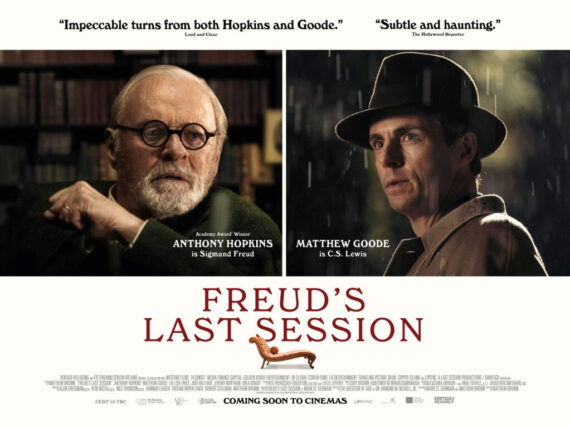Review of Civil Rights Movement film Selma, showing in Plymouth Arts Centre Cinema from 20-26 March.
This past month has seen the 50th anniversary of the Selma-Montgomery marches, a landmark in the African-American Civil Rights Movement, now dramatized by Ava DuVernay in Selma. These marches ostensibly sought to achieve better voting rights for non-whites and were spearheaded by the most celebrated activist in the Movement, Dr Martin Luther King. They also depended heavily on the involvement of several important grassroots movements such as the SNCC, as well as organisers such as James Bevel and Reverend Hosea Williams. The last of the three marches culminated in a rousing speech by Dr King before a crowd of 25,000 outside the Alabama State Capitol Building.
He declared, “however difficult the moment, however frustrating the hour, it will not be long” before the Movement’s goals were achieved.
The road to Selma was long and fraught, however. A groundswell of support for civil rights had been growing in the US throughout the twentieth century, although any advance was met by oppression and stigma at every turn. One milestone at least was the founding of the NAACP in 1909. Well-known figures, from the writer James Baldwin to the firebrand Malcolm X also helped sow the seeds against bigotry. But the transition was slow and painful. The Deep South especially provided the backdrop for a series of vile, racist acts that mostly went unchecked and unpunished. This state of affairs reached an appalling nadir in September 1963, when four girls were killed by Klansmen in a bomb attack on the 16th Street Baptist Church in Birmingham, Alabama.
Two events over the following year signalled the beginning of a sea-change. President Lyndon Johnson, on the back of a landslide election victory, introduced a Civil Rights Act that notionally sought to outlaw racial discrimination. Then, in October 1964, Dr King accepted the Nobel Peace Prize, the implication being that the world was watching. This is the point at which Selma kicks off.
The town of Selma is first shown to be the location for protest marches before any outside involvement. The first of the marches took place in February 1965, in protest at the murder of Jimmy Lee Jackson. It went ahead without Dr King, but even more importantly it went ahead without a legal mandate to proceed. The marchers, numbering in their hundreds, were met by state troopers when crossing the Edmund Pettus Bridge. Pictures of the vicious events of “Bloody Sunday”, which included organiser Amelia Boynton being beaten unconscious, were broadcast to horrified onlookers the world over.
If anything, these events galvanised the Movement and a further march was organised a few days later, this time with Dr King’s inclusion. Support was drawn from across the county and included religious leaders and whites and non-whites alike. Matters came to a head as the now-thousands strode arm-in-arm back over the Edmund Pettus Bridge. Still without the crucial mandate to stage the protest, and again with state troopers waiting on the other side, it began once again to look as if they were marching towards doom. Caught in the agony of the moment, Dr King had to decide whether to proceed unprotected, with the teargas and billy clubs of the first march still fresh in many of the marchers’ minds.
If you are not familiar with exactly what happened next, don’t worry, I won’t say here. Suffice it to say that DuVernay manages to contextualise these events expertly to show that the real driving force for political change comes as much from the hard work in the background as the symbolism of the marches in the foreground. Played excellently by David Oyelowo, Martin Luther King is shown here as tenacious and inspiring in public, but privately he is fretting and conflicted. He is not alone. President Johnson (an authoritative Tom Wilkinson) is seen as a reticent actor pulled in several directions, not only by the Civil Rights Movement but also from segregationists and even from within his own administration.
Typifying Johnson’s uphill task are his interactions with the odious Governor of Alabama himself, George Wallace (sample quote: “segregation now, segregation tomorrow, segregation forever”), played with judicious menace by Tim Roth.
The well-publicised frailties of Dr King’s private life show his family in turmoil when outwardly he was looked upon as a saviour. This domestic drama is no mere sideshow, however, and arguably the film’s best speech is given by his wife Coretta (a magnificent Carmen Ejogo), when describing precisely the sacrifice involved in their way of life. As for Dr King’s orations, without the necessary permissions from Dr King’s estate, DuVernay has had to be creative with their depiction, giving the sense of them without resorting to laboured duplication.
The overall effect is one of Selma being a microcosm of America’s divided self.
With so much history to summarise, the dialogue does feel occasionally laden with exposition. Yet Selma is at least able to depict the significance of events without evangelising, and the severity of the struggle faced by the Movement without tipping over into gratuitousness. Irrespective of any lack of recognition by the Academy and others for its obvious achievements, this important dramatization of a crucial moment in the terrible birth of desegregated America will long outlive any petty controversies surrounding it now.
It may have taken longer than even Dr King anticipated, but with a document like Selma on its side, the aims of the Civil Rights Movement can at least begin to be reimagined by a new generation.
Ieuan Jones
Twitter: @_Ieuman








Comments
No comment yet.